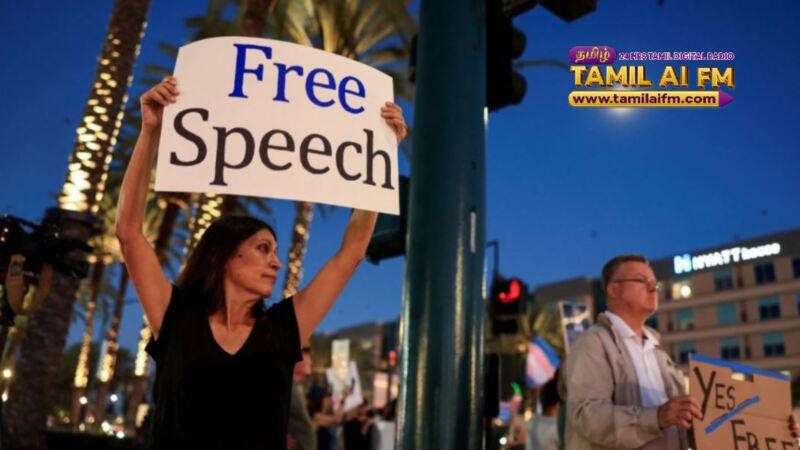WASHINGTON — The White House crackdown on political rhetoric in the aftermath of activist Charlie Kirk’s assassination has exposed a rift among conservatives, with some applauding curbs on what they see as hate speech and others warning the administration has gone too far.
In the days since Kirk was shot at a college campus in Utah while engaging in civil discourse, President Donald Trump and top officials throughout his government have issued public threats and put left-leaning groups on notice for language they find unacceptable following the 31-year-old’s death.
Attorney General Pam Bondi promised to prosecute purveyors of hate speech, and Federal Communications Commission Chair Brendan Carr threatened repercussions against broadcasters after a television host made remarks he did not like.
Vice President JD Vance said those who celebrated Kirk’s killing should lose their jobs, while Secretary of State Marco Rubio and Defence Secretary Pete Hegseth issued penalties for foreign nationals and US troops who did the same.
Sound like cancel culture? Republicans, who have long accused Democrats of seeking to shut down public figures or entities to whom they object, say this is different. They are seeking to brand their actions instead as a culture of consequences.
“They’re not losing their jobs to cancel culture, they’re losing them to Consequence Culture,” the president’s son, Donald Trump Jr., wrote on X.
Many top conservatives, however, object to the administration’s moves. Republicans ranging from former George W. Bush adviser Karl Rove to US Senator Ted Cruz and conservative commentator Tucker Carlson have raised concerns about using Kirk’s death to go after political rivals or to curb freedom of expression, worrying about a dangerous precedent that could backfire against Republicans when Democrats are in power.
“If the government gets in the business of saying: ‘We don’t like what you the media have said. We’re going to ban you from the airwaves if you don’t say what we like,’ that will end up bad for conservatives,” Cruz said on his Friday podcast.
He called Carr’s threats to fine broadcasters or pull their licenses over the contents of their shows “dangerous as hell.”
Trump, who largely has stood by Bondi and Carr, declined to delineate the difference between cancel culture and consequence culture on Friday, dismissing a question about the subject as a trick.
“I’m a very strong person for free speech,” he told reporters in the Oval Office, before complaining that his media coverage was persistently unfair.
White House deputy chief of staff Taylor Budowich said Trump’s team, which is preparing an executive order on political violence in the wake of Kirk’s death, supported free speech unequivocally.


